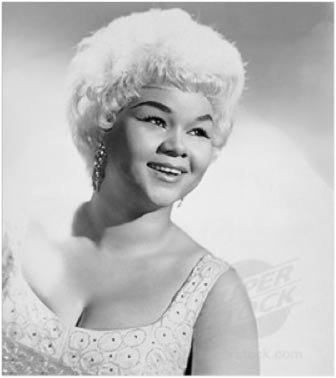- Question: How do the ingredients in e-cigarettes and vaporizers affect respiratory health? - August 16, 2019
- Bad Technique and Vocal Injury - January 9, 2019
- Is Edible Marijuana Dangerous for the Voice? Myths Dispelled - December 18, 2018
- Surprise! You have a hemorrhage - January 31, 2018
- Graves’ Disease: Treatment Overview - September 25, 2017
- Adele and the Stigma of Vocal Injury - July 11, 2017
- Vocal Curbside Consult: How does the thyroid affect the voice? - May 16, 2017
- Vocal Curbside Consult: How do hormones affect the voice? - May 3, 2017
- Vocal Curbside Consult: How do emotion and stress affect the voice? - April 17, 2017
- Vocal Curbside Consult: Vocal Recovery After Illness - April 7, 2017
 This site is primarily meant to be a source of information on care of the voice. But I also try to give honor to the art of voice. I would, therefore, be remiss if I did not observe the great loss to vocal arts with the passing of Etta James. Her sudden absence is felt worldwide, as we listen to her music again, in tribute, on the radio waves.
This site is primarily meant to be a source of information on care of the voice. But I also try to give honor to the art of voice. I would, therefore, be remiss if I did not observe the great loss to vocal arts with the passing of Etta James. Her sudden absence is felt worldwide, as we listen to her music again, in tribute, on the radio waves.
It’s possible Angelenos are feeling this loss even more strongly, as James discovered her voice in a South Central Los Angeles church. We feel we’ve lost one of ours. In the end, leukemia took her life. But that is not what will be remembered of the incredible voice that gave generations of music lovers something to relish.
A legend in her time and ours, Etta James sang ballads that wrung heartstrings and shaped R&B for all artists that followed her.
She is the definition of “making it on your own,” coming from impossible lows to an equally impossible high. Her inspiration is clearly heard in the works of Amy Winehouse, Adele, Beyonce and countless other soulful artists.
The remembrances of Etta James have featured interviews with her. Listening on my way to work this morning, I was quite surprised to hear her speaking voice. James was a notable contralto but her low, raspy speaking voice would make you wonder if she could sing more than three notes. But even in her later years, she hit far more than three notes. Of course, it was limited and not the same voice of her teenage and early career years. However, she never lost the soul, vibrance, and passion that defined her.
It made me think about voice and voice production. I often say that I can anticipate if a patient will have vocal pathology by listening to their speaking voice. I often can predict, simply by listening to them and watching them speak, what I will see on an exam. It’s certainly not foolproof but, usually, my instincts are correct. However, I find myself humbled now, having listened to James’ interview voice and her singing voice. I would never have guessed it was the same person.
To me, this shows that we still have much to learn about the voice and how it is produced. I often tell a signer to come in for a check when they are feeling well because many singers have pathology even when they sound good. It gives me a baseline upon which to measure all future exams. I often do see little scars, early nodule formation, or other problems during these baseline exams that singers never knew they had. It’s important to remember that it is possible to have pathology and still sound wonderful. In fact, I’d bank on the fact that James’ cords did not look great.
But, oh, their sound… it just goes to show that not all great voices come from perfect cords. And by the same token, not all problems come from imperfect cords. Singers come to me when they are having a problem and are often shocked to see normal looking cords. They’re often sure I’ve missed something. But the reality is that so much of voice comes from sources beyond the vocal cords. Indeed, the cords alone (if you subtract all other structures that affect the voice) sounds buzzy, like the sound made when blowing through just the reed of a brass instrument.
What strikes me today, as we mourn the loss of Etta James and celebrate the legacy she leaves behind, is that the voice is mysterious and great. We know far less about it than we dare to admit. However, it is in that mystery, in that unknown something, that truly great voices are found.



